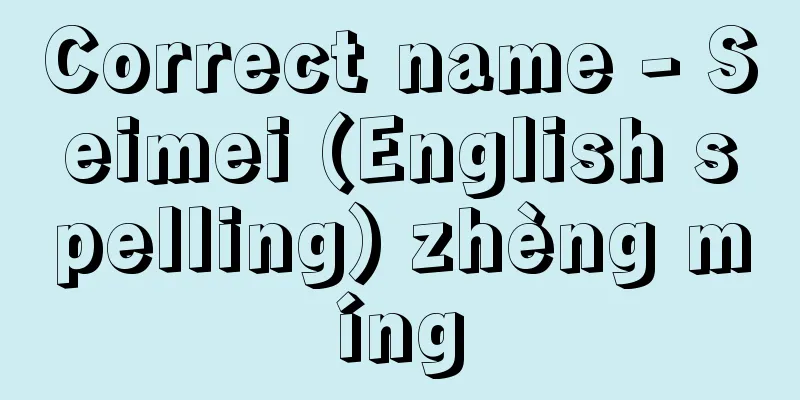Burglary - trespassing

|
This is a crime of breaking into a person's residence, or into a house, building, or ship guarded by a person without a valid reason, or of not leaving these places when requested to do so, and is punishable by imprisonment of up to three years or a fine of up to 100,000 yen (Article 130 of the Penal Code). Attempted acts are also punishable (Article 132 of the Penal Code). It is also called the crime of trespassing. There are conflicting theories regarding the protected interests of this crime, one that interprets it as the peace of the residence, and the other that interprets it as the right to a residence. Of these, the former theory emphasizes whether the entry into a residence is peaceful or not, while the latter theory emphasizes whether it is against the will of the resident. In this crime, a "residence" is a place used for daily life, so for example, an office, laboratory, or store is included (however, some theories interpret it as a place used for sleeping and eating). A "residence" is a house built for the purpose of being used as a residence. In addition, the aforementioned houses, mansions, and buildings also include the surrounding land, so trespassing there is also a crime. Regarding the meaning of "trespassing," in relation to the protected interests of this crime, in the peace of the home theory, it is interpreted as entering in a manner that disrupts peace, while in the right of the home theory, it is interpreted as entering against the will of the person with the right of the home. However, in both theories, this crime does not occur if there is consent (agreement) from the resident or guard, so there is not much difference in the conclusion. In addition, in places such as department stores and hotel lobbies, where it is expected that an unspecified number of people will enter and leave in advance, the illegality is precluded by the existence of "presumed consent." In this regard, case law has interpreted that entering with illegal, especially criminal, purposes constitutes this crime because it is against the true will of the resident or guard, but there is much criticism of the idea of judging this only based on the purpose of the perpetrator. [Tetsuro Nawa] Source: Shogakukan Encyclopedia Nipponica About Encyclopedia Nipponica Information | Legend |
|
正当な理由がないのに、人の住居もしくは人の看守する邸宅・建造物もしくは艦船に侵入し、または要求を受けたにもかかわらずこれらの場所から退去しない罪であり、3年以下の懲役または10万円以下の罰金に処せられる(刑法130条)。これらの未遂も処罰される(同法132条)。家宅侵入罪ともいう。本罪の保護法益につき、住居の平穏と解する説と住居権と解する説とが対立している。このうち、前説では、住居への立入りが平穏か否かを重視するのに対し、後説では、住居者の意思に反するか否かが重視される。本罪において、「住居」とは、日常生活の用に供する場所であれば足りるから、たとえば事務所、研究室、店舗などもこれにあたる(ただ、人の起臥(きが)寝食に使用する場所と解する説もある)。「邸宅」とは、住居に使用する目的でつくられた家屋をいう。なお、前述の住居や邸宅、さらに建造物には、それらの囲繞(いにょう)地も含むから、ここに侵入するのも本罪にあたる。「侵入」の意義については、本罪の保護法益につき述べたところと関連して、住居平穏説では、平穏を欠く形態で立ち入ることと解されるのに対し、住居権説では、住居権者の意思に反して立ち入ることと解される。しかし、いずれの説でも、居住者・看守者の同意(承諾)があれば本罪は成立しないものと解されているから、結論的にはそれほど違いはない。なお、デパート、ホテルのロビーのように、あらかじめ不特定・多数人が出入りすることが予定されている場合には、「推定的承諾」があるものとして違法性が阻却される。この点に関し、判例は、違法、とくに犯罪の目的で立ち入る場合は居住者・看守者の真意に反するから、本罪が成立するものと解しているが、行為者の目的だけでこれを判断する考え方には批判も多い。 [名和鐵郎] 出典 小学館 日本大百科全書(ニッポニカ)日本大百科全書(ニッポニカ)について 情報 | 凡例 |
Recommend
Bunting
Canadian physiologist. He initially studied theol...
Atash Kadeh - Atash Kadeh
… There are about 50 known Zoroastrian fire templ...
Lynch (English spelling) lynch law
William Lynch (1742-1820) was a justice of the pea...
Eishin
...Therefore, there are 11 types of spirals : 21 ...
Westminster Abbey
A church in the Westminster district of London, of...
Palmyra
An ancient city in central Syria. Under Roman rule...
Kisai Domain
…In the past, it was written as Kisai, and in the...
Stone-lobster - Stone-lobster
…Although “Otedama” is the common name throughout...
Kyoto Magistrate's Office - Kyoto Machibugyosho
…After Toshitsugu Tsuchiya became the magistrate ...
Punishment -
A punishment given for a crime, or an act that go...
Catherine wheel
…In artworks, she is often depicted as a crowned ...
Littorina brevicula (English spelling) Littorina brevicula
…A general term for a group of snail shells in th...
Couperin, MA
…French composer, organist and violinist. The mos...
Amarna Period - Amarna Period
The 18th Dynasty of the Egyptian New Kingdom, und...
Inquiry - Toijo
〘noun〙① In the shogunate's legal system of the...









